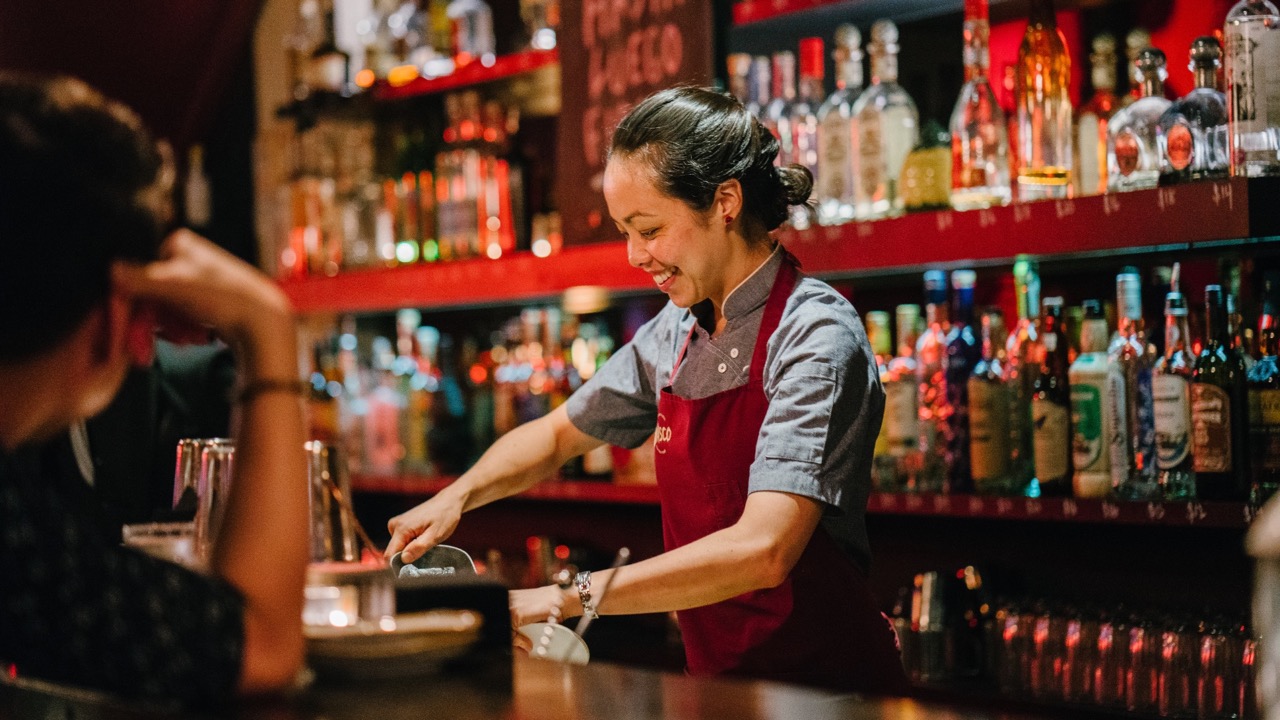Ask the Expert: Employment Legislation Updates for Restaurants
2021 has already brought with it a number of employment legislation updates that can significantly impact restaurants across the country. From the American Rescue Plan to ongoing vaccine updates, it’s imperative that restaurant owners understand these updates in order to protect their employees, themselves, and their restaurant.
To break down the legislation updates and the impact they have on restaurant owners, our very own Kathy Ogilvie recently teamed up with Joy Einstein of Shulman Rogers. The two discussed everything from rehiring obligations post-COVID to labor shortage fixes.
Read the full Q&A below, or reach out to us at Restaurant People Cloud for specific questions regarding employment legislation updates for restaurants.
Employment Legislation Updates for Rehiring
COVID forced businesses nationwide to lay off or furlough employees in bulk and restaurants were no different. As in-person dining diminished, so did the need for many employees. With vaccinations in full effect and restaurants reopening their doors, rehiring updates are crucial to understand.
Q: Do employers have a general obligation to rehire employees they'd previously terminated before hiring new workers?
A: There is no general obligation to rehire terminated employees, but an obligation can arise in a variety of ways. An obligation to rehire previously terminated employees can arise by contract, by policy, or by law. So, what does that mean?
Some restaurants are unionized, and so an obligation to rehire terminated employees could arise by a collective bargaining agreement, or an obligation could arise in an employment agreement. For example, some employment agreements will have a provision about rehire. It could also arise by policy, so you could have a provision in your handbook about furloughs, for example.
Then your handbook policy on furloughs could give rise to an obligation to rehire people that you've let go of. Or, you could've created an obligation for yourself by the policies or documents you sent out at the beginning of the pandemic. Many restaurants sent their employees furlough letters that said they’re being furloughed until further notice, but at the point in time where we can rehire employees, we will rehire all of those people that we let go. So if you sent a furlough notice out along those lines, then you could be obligated to rehire the people you've let go before you can hire new candidates.
Then, of course, an obligation to rehire employees could arise by law. For example, D.C. passed a Displaced Workers Right to Reinstatement and Retention Amendment Act, and that gives rise to D.C. restaurants to rehire workers that they've let go during the pandemic before they hire new employees.
Q: What does the D.C. Displaced Workers Right to Reinstatement and Retention Amendment Act mean for restaurant owners?
A: This is a law that D.C. passed that requires certain hospitality employers to reinstate workers whose jobs were eliminated during the pandemic, before offering open positions to new hires. It applies to bars, restaurants, brewpubs, and anybody in that space that had 50 or more employees as of March 1, 2020.
It applies to all employees who stopped working for a covered establishment for reasons other than voluntary resignation or termination for cause. So the bottom line is that as positions become available, restaurants in D.C. that meet that 50-employee threshold must offer positions first to employees let go because of COVID.
However, there are some scenarios that it does not apply, including salaried exempt employees. Meaning, it would apply to nearly all your servers or bar staff but not managers that you've let go of if your managers are salaried. It also doesn't apply to employees who received severance payments in connection with their discharge. Finally, it doesn't apply to employees whose employment was terminated for demonstrable just cause.
Q: If a former employee is not rehired and a new candidate is hired instead, could the former employee sue for discrimination?
A: Yes, there is a great risk to restaurants with regard to discrimination claims in their rehiring process. So let's just say that there is no obligation to rehire a terminated employee. You're not governed by the D.C. Displaced Workers Act, you have no contractual obligation to do it, there's no policy that obligates you to do it. You still have to think long and hard about your rehiring decisions because discrimination claims are a real possibility.
Those employees who are not rehired could argue that, now that you know their national origin or their age or their history of disability and request for disability accommodations, that's the reason why they were passed over for rehire, and that's the reason why the company hired somebody new from outside the organization instead of offering them a position back.
Presumably, if they were qualified to work for the restaurant before, they should still be qualified to work for you now. So that does give them a pretty strong claim. Discrimination in hiring claims are difficult to defend against where there's very little written track record of the performance problems. Because of this, all restaurants need to be developing a plan for how they're going to make their rehiring decisions.
For example, you could meet with your managers and institute a restaurant-wide policy that says unless somebody has at least one written disciplinary writeup that they're going to be offered reemployment. Or, you could meet with your managers and make a restaurant-wide policy that says we're implementing a seniority system that ensures the longest-tenured employees are brought back before anyone else.
Then you have a logical, bias-free system for how your rehire decisions were made. If you do end up being sued, here you have a system in place that accounts for why you made the decisions that you made. But the bottom line is that you need to be able to articulate legitimate, nondiscriminatory reasons why you're not hiring a certain employee back.
Q: If former employees are rehired, does their sick leave and PTO need to be reinstated?
A: That is governed by state law. Some states have requirements that sick leave be reinstated. In D.C., the rule is if employees are rehired within 12 months of termination, previously accrued, unused leave needs to be reinstated and can be used immediately to the same extent employee was able to use leave right before their termination.
In Maryland, if an employee is rehired within 37 weeks, accrued but unused leave has to be reinstated unless the employer voluntarily paid out accrued leave on termination. A handful of restaurants were paying out leave upon termination. Maryland makes clear that if you did do that, it doesn't have to be reinstated.
Tackling the Labor Shortage
Restaurants nationwide are facing labor shortages as employees are opting for better-paying work-from-home jobs that have grown in popularity following the pandemic. So, what can restaurants do to tackle the labor shortage?
Q: What can employers do to address labor shortages?
A: A lot of employees have left the industry maybe permanently because the pandemic has taught them how volatile it can be. They don't want to be in the same position of being without work during the next pandemic. Also, all restaurants have begun hiring at once, which means there's huge competition for servers right now.
Coupled with that, we have really robust unemployment benefits that employees are being offered, so I think a lot of them are just riding out their unemployment for a little bit longer and taking their time getting the vaccine. At any rate, that means that there's huge competition for labor right now.
Restaurants have been toying with the idea of referral bonuses which can be a good solution for finding labor sources. Referral bonuses are very tricky under the Fair Labor Standards Act. You need to have specific language in your referral bonus policy in order to avoid having to include these bonuses in the regular rate of pay for overtime purposes. If you are interested in putting a referral bonus system into place, it’s crucial to talk with a lawyer about it because there is some specific language that should be included in that policy.
Assuming your policy is worded correctly, a single-time payment is most likely excluded because the rule is, when you have to include these payments in their overtime calculation, it has to be remuneration for employment and if the employee is just getting the bonus for referring somebody, it's in no sense tied to their employment.
But a lot of restaurants have been structuring this so you get a payment one time upon the referral's hire, and then you get a second payment a year later after that employee has been around for a year. The second payment looks a lot more like remuneration for employment because now the second payment is tied to their employment. Offering a one-time payment rather than a two-tiered system is safer because you're increasing your risk that that might need to be factored in for the purposes of overtime.
Q: Can restaurants reduce the pay of certain staff and increase the pay of other staff members that are harder to recruit?
A: A lot of restaurants are playing around with what wage rates they're going to offer right now. Line cooks are particularly difficult to find, so they want to increase the pay of line cooks and they're going to bring down the pay of servers a little bit to offset it. Restaurants have free range to make whatever compensation changes that they want with just a few guidelines.
In general, you have to give employees a pay period's advance notice before you make changes to their compensation. So you should not make any changes until they've been given generally two weeks’ notice. In D.C., every time you make changes to a person's compensation, they have to get a specific form that gives them notice of the change.
Then, anytime you are making changes to compensation, you need to ask yourself, do we have a legitimate, nondiscriminatory reason why we are making the reduction? Let's say that you are making a reduction to the hourly age of line cooks and it just so happens that all of your line cooks happen to be Hispanic. That could trigger someone to think that they're being discriminated against. So you need to be able to articulate why exactly it is that the line cook's pay is reduced and the pay of another class of employees not being reduced.
The rule for your exempt employees is that they have to be paid at least $36,000 (technically between $35k-$36k) a year in order to maintain their exemptions. So don't reduce their salaries below the exemption threshold. In general, those are just the things to keep your eyes on when you're making wage reductions.
Post-COVID Discrimination and Harassment in Restaurants
Because of these employment legislation updates, there may arise an increase in discrimination and harassment claims that employees are investigating.
Q: Will we see an increase in discrimination and harassment claims that arise after the pandemic?
A: We are predicting a huge increase this year in the number of discrimination and harassment claims that we see at restaurants. There's a lot of different reasons for that.
One, the pandemic made it harder for employees to pursue their claims, so jury trials were suspended in almost every state, cases just weren't moving along because the courts weren't open. There was a huge backlog and indefinite wait times. That scared off a lot of people and it scared off a lot of attorneys from taking on claims that they would otherwise take because people just weren't able to get relief. Now the courts are generally back open, which means the floodgates are going to open with people who have been sitting on their claims for quite a while. They're going to feel ready to bring them now.
There will also likely be quite a few extortionist claims. People have gotten used to not working and there are going to be quite a few who would like to continue not working. So they're going to be looking for a cash handout in the form of an extortionist lawsuit.
Q: What about sexual harassment in restaurants after the pandemic?
A: People have been caged animals for the past year and a half. They're going to want to go out and cut loose and drink maybe more than they should and have a little bit more fun than they should.
Unfortunately, that could result in poor behavior towards servers a little bit more than normal. At the same time, servers have been cash poor for a long time now and may put up with behavior that they otherwise wouldn't because they are in a position where they can finally earn those tips again. This could create the perfect storm for discrimination and harassment complaints.
Q: If this behavior is coming, what can employers do to limit their liability?
A: Make sure your managers are vigilant. Your managers need to be keeping a close eye on how much people are drinking and what they're saying and doing to their servers so they can step in if they're acting in an inappropriate way.
Restaurants have been really great about using technology to their advantage over the pandemic, and continue using that technology to your advantage. Create reporting lines and invest in an app that allows servers to report their harassment complaints via the app. Make sure that your HR knows how to jump on these harassment and discrimination claims immediately because an uptick is expected.
Q: Should restaurant employee handbooks be revised to prepare for these possibilities post-pandemic?
A: Yes, every restaurant that's out there needs to have a discrimination and harassment policy in place. Every single handbook needs to have a detailed and complaint reporting process for discrimination and harassment. You need it, you need it, you need it. If a restaurant is sued, there are defenses available to the restaurant if they have a discrimination harassment policy in place that includes complaint reporting. So it's really a must.
Stay Ahead of Employment Legislation Updates
If you’re a restaurant owner preparing to fully reopen your doors, you need to stay on top of these updates before it’s too late. Whether you’re looking to learn more about vaccine-specific updates or some of the most common payroll mistakes to avoid in 2021, Restaurant People Cloud has you covered.
We specialize in HR and payroll solutions for restaurants to ensure you, your employees, and your restaurant are protected in a new world of HR. Contact our team today to learn how we can help!
Table of content
Share this
You May Also Like
These Related Stories

COVID Vaccine & Legislative Updates for Restaurants

What Does FICA Tip Credit Eligibility Mean for Restaurant Owners?

